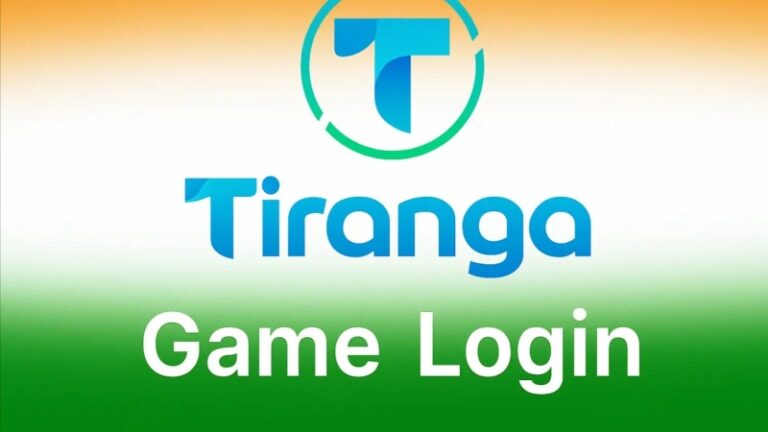Live Dealer Casinos: Bridging the Gap Between Virtual and Real-World Gambling
Online gambling has undergone significant evolution in recent years. While early platforms offered simple digital recreations of classic games, today’s players seek more immersive and authentic experiences. This demand gave rise to one of the most transformative innovations in the industry: live dealer casinos.
Combining the convenience of online play with the atmosphere of a brick-and-mortar casino, live dealer games represent a middle ground that appeals to traditional players and digital natives alike. With high-definition streaming, professional dealers, and interactive features, these games have become a staple of the modern online gambling experience.
In this article, we’ll explore how live dealer casinos work, why they’ve grown in popularity, their technological foundations, and the broader implications for players and operators.
What Are Live Dealer Casinos?
Live dealer casinos are online platforms where real human dealers operate games in real time from a physical studio or casino floor. Players connect via video stream and place bets using digital interfaces, watching the action unfold live—whether it’s a roulette wheel spinning, cards being dealt, or dice being thrown.
These games aim to replicate the social and tactile aspects of a land-based casino, while still offering the flexibility and reach of online platforms.
Popular Live Dealer Games
Live dealer formats now cover a broad range of classic casino games, including:
- Blackjack
- Roulette (European, American, and Lightning variants)
- Baccarat
- Poker (Casino Hold’em, Three Card, Caribbean Stud)
- Game shows (e.g., Dream Catcher, Monopoly Live, Crazy Time)
Each game is hosted by a professional dealer who interacts with players via chat, creating a more personal experience than traditional online games.
How Live Dealer Technology Works
The live casino experience depends on a sophisticated mix of hardware and software:
1. Studios and Equipment
Live dealer games are filmed in specially designed studios with professional lighting, multiple cameras, and green screens. Some are even broadcast directly from real casinos.
High-end card dealing machines, auto-roulette wheels, and physical betting tables are used, ensuring gameplay is authentic and verifiable.
2. Optical Character Recognition (OCR)
OCR technology reads the outcome of each game—for example, the value of a drawn card or where a roulette ball lands—and transmits this data to players instantly. This bridges the gap between physical and digital, allowing for real-time resolution and payouts.
3. User Interface and Game Control Unit (GCU)
The GCU encodes the video stream and integrates it with the player’s interface. Players can make decisions, place bets, and chat with the dealer, all through a responsive digital overlay.
4. Streaming Infrastructure
Low-latency video streaming is essential to ensure smooth gameplay. Leading providers use global server networks and compression technology to minimize lag and buffering, even on mobile devices.
Why Players Love Live Dealer Casinos
1. Authenticity and Trust
Seeing a real person deal cards or spin the wheel helps assure players that the game is fair. Unlike RNG-based games, which can feel opaque or detached, live dealer games add a layer of transparency.
2. Social Interaction
Players can chat with dealers and sometimes with other participants, recreating the social environment of a real casino. This interaction fosters engagement and makes the experience feel less solitary.
3. Immersive Experience
With multiple camera angles, ambient casino sounds, and real-time gameplay, live dealer games offer a level of immersion that static digital games can’t match.
4. Higher Betting Limits and VIP Tables
Some live casinos offer exclusive high-stakes tables, complete with tailored service and advanced game features—appealing to VIP players and high rollers.
Challenges and Limitations
Despite their appeal, live dealer casinos aren’t without drawbacks:
1. Bandwidth Requirements
Smooth gameplay requires a strong internet connection. Players with slower speeds may experience lag or degraded video quality.
2. Limited Game Speed
Live dealer games are slower than RNG versions due to the time needed to deal cards or accept bets. This may not appeal to players who prefer fast, continuous action.
3. Higher Operating Costs
Running live studios, paying dealers, and maintaining equipment makes live dealer games more expensive for operators. This can affect house edge, promotional offerings, and scalability.
4. Geographic Restrictions
Due to licensing and regulation, not all players can access live dealer games, particularly in markets with strict online gambling laws.
The Role of Live Dealer Providers
Several specialized companies dominate the live https://18win.digital/ space, providing white-label solutions to gambling platforms. These include:
- Studio environments and tech infrastructure
- Dealer training and staffing
- Regulatory compliance
- Stream management and UI integration
Operators typically lease these services and customize the front end for branding.
Emerging Trends in Live Dealer Gaming
1. Augmented Reality (AR) and 3D Environments
Some providers are experimenting with AR overlays and virtual casino settings to further enhance immersion. Players may one day interact in shared virtual spaces using avatars and spatial audio.
2. Multiplayer and Shared Experiences
Social and multiplayer features—like community jackpots, side bets, and team-based events—are being added to increase player engagement and time-on-site.
3. Localized and Language-Specific Tables
Live dealers now operate in multiple languages and cultural styles to better appeal to international audiences.
4. Game Show Hybrids
Games that combine traditional mechanics with entertainment formats—like spinning wheels, dice games, and audience participation—are becoming popular among younger and more casual audiences.
The Future of Live Dealer Casinos
As technology continues to advance, live dealer casinos are poised to become even more central to the online gambling landscape. By combining human interaction with digital convenience, they satisfy a growing desire for connection in an increasingly virtual world.
With better streaming, more immersive formats, and the integration of AI to monitor gameplay and personalize experiences, the live casino experience is moving closer than ever to fully replicating—and perhaps even surpassing—the excitement of land-based gaming.
Final Thoughts
Live dealer casinos have redefined what it means to play online. They bring a human element back into digital gambling, merging trust, entertainment, and community in ways that static interfaces cannot. As players seek more authentic and engaging experiences, this format is likely to remain at the forefront of innovation in the 18win industry.
Whether you’re a seasoned player or new to the scene, live dealer games offer a compelling, transparent, and entertaining way to experience the thrill of the casino—no matter where you are.







